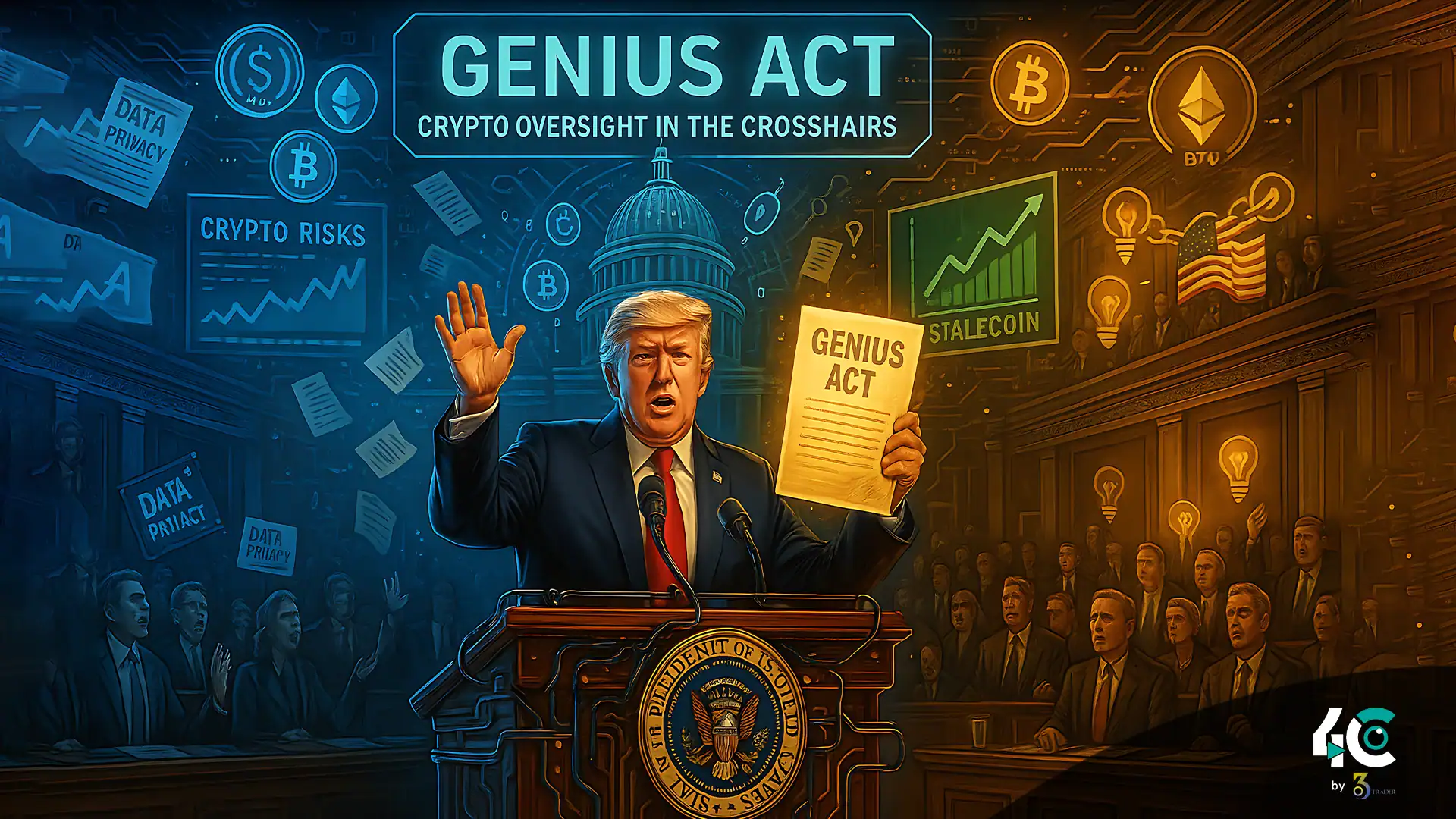Trump Pushes for Swift House Vote on GENIUS Act
Donald Trump is calling on lawmakers to push forward with the GENIUS Act—a major stablecoin regulation bill that passed the Senate this week. In a public statement, Trump emphasized that the legislation would be transformative, asserting that America must move fast without delays or alterations.
Trump declared on Truth Social: “The Senate just passed one of the greatest bills ever. It’s going to make America the clear leader in digital assets.”
“The sooner, the better—without slowdowns or additions to the shopping cart.”
The Senate passed the Guiding and Establishing National Innovation for US Stablecoins (GENIUS) Act with strong bipartisan support—68 votes in favor and 30 against. The bill now advances to the House, which remains undecided as political division deepens.
What the GENIUS Act Means
The GENIUS Act sets mandatory guidelines for dollar-backed stablecoins, requiring a strict 1:1 reserve with the U.S. dollar. It also mandates that issuers obtain a federal or state license and comply with anti-money laundering (AML) checks.
The act limits what stablecoin issuers can do with their reserves—restricting usage to redemptions and low-risk investments such as Treasury repos.
Supporters argue that this law would modernize the U.S. payment system and strengthen the dollar’s position. Senator Bill Hagerty, the bill’s sponsor, noted that near real-time transactions would benefit both small businesses and everyday consumers.
Controversy Over Crypto Conflicts
Despite progress, the bill has faced criticism for potential conflicts of interest involving Trump himself. Senator Elizabeth Warren claims the bill will benefit Trump’s own stablecoin, USD1, which was issued via his family’s platform, World Liberty Financial. Trump has reportedly earned over $57 million from the venture.
Warren and her allies argue that unless stricter guardrails are added, the law would let billionaires and tech firms exploit consumers under the guise of innovation.
She warned that figures like Elon Musk, Jeff Bezos, and Mark Zuckerberg could release their own stablecoins—potentially tracking user data and suppressing competition.
A Divided House
Lawmakers are divided over whether to pass the GENIUS Act in its current form or integrate it with other crypto-related proposals, such as the STABLE Act or the CLARITY Act. Some House Republicans are proposing a larger legislative package, while others support Trump’s call for a “clean” version.
The debate continues ahead of the July 4 legislative deadline, as the House wrestles with potential conflict-of-interest provisions and Trump’s personal connections to crypto.
A Historic Turning Point?
If passed, the GENIUS Act could become a landmark in U.S. cryptocurrency policy—regulating stablecoins within mainstream finance and possibly establishing a legal foundation for a digital dollar.
All eyes are now on the House. The outcome could determine whether the U.S. takes the lead in setting global standards for stablecoin regulation—or falls into deeper political gridlock over its digital financial future.



























